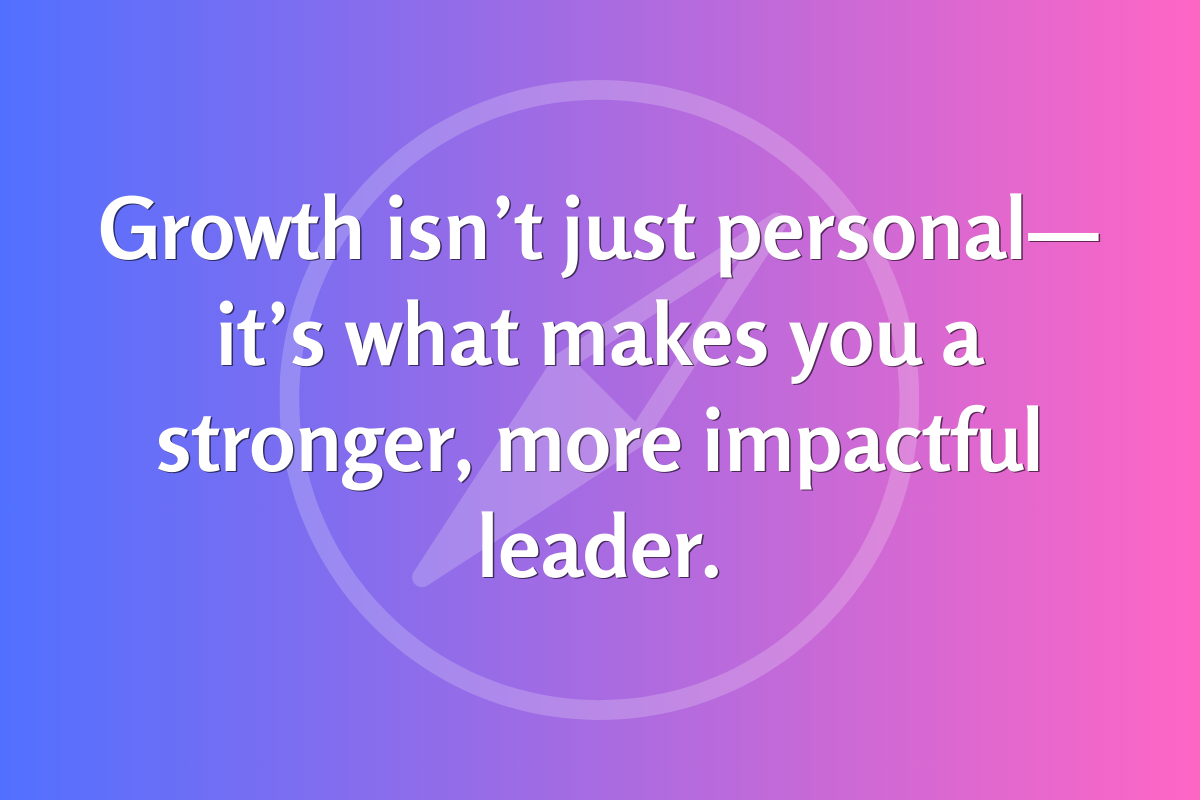Leading Through Growth: How Your Personal Struggles Shape Your Impact

What if the very things you struggle with most are the key to your leadership potential?
Over the course of my 59 years, I’ve faced a number of recurring challenges that lead to conflict, confrontation, and my own internal messiness.
To name a few:
- No matter how hard I try, my mother and I still trigger each other—for our own reasons.
- I can be excessively critical of social norms and traditions, which means I get upset over expectations and assumptions about how things should or shouldn’t be.
- This often makes me confrontational instead of collaborative. I’m not afraid to speak up, but if I’m not mindful, I can come across as accusatory or inconsiderate.
- I hate being told what to do (see: social norms), which ironically led me to spend many years working with a manipulative bully.
- When I feel judged, oppressed, or like I don’t belong, I can become overly judgmental myself. And that often ties into feelings of shame and inferiority, which only makes me more defensive.
What have I learned from these challenges?
Reacting, putting up defences, and constantly trying to control outcomes is exhausting. It’s hard on my body, mentally crippling, and prevents me from fully experiencing freedom, creative expression, and equanimity. In short, if I let myself get overwhelmed by my challenges, life sucks.
Now, this might sound clichéd, but it’s my truth: I’ve learned to love, accept, appreciate, and be compassionate toward myself.
It’s taken a long time, and it’s still a work in progress. But instead of struggling with self-love, I now wrestle more with doubts about my direction. That is the kind of uncertainty that I can handle.
For about the last two years, I’ve been consciously practicing curiosity instead of contributing to contention. I’ve been trying to ask more questions instead of making direct or declarative statements. When possible, I try to present both sides of an argument, or I’ll use phrases that reduce tension and provide clarity, like, “What I’m saying is…” followed by “What I’m not saying is…”
For example, what I’m not saying is that I’ve perfected sharing my opinions in a way that never creates conflict.
What I am saying is that I’m working on it. I’m taking more time to edit myself for sweeping generalizations or oversimplifications, opting instead to ask questions, use examples, cite factual sources, and acknowledge complexity.
The beauty of this kind of self-reflection is the realization that our struggles—past or present—are opportunities for growth and making a difference.
What we struggle with is not weakness—unless we allow ourselves to become victims of our problems. Instead, our challenges are the greatest areas for self-improvement.
Learning a new skill is one thing, but overcoming a personal challenge and developing wisdom from it?
That’s true personal power and inner fortitude.
I’d love to hear your take on this…
How is your ability to lead and inspire others negatively affected by not recognizing your core recurring challenges—the ones that show up as conflict, confrontation, and internal chaos?
The parts of ourselves that we struggle with the most hold the key to our leadership potential. When we overcome what once burdened us, we become more equipped to support others facing similar challenges. These are the roots of compassionate, human-hearted leadership for the world’s difference-makers.
If you see yourself as this kind of leader but are struggling to make a meaningful impact, I invite you to connect with me for a conversation. Together, we can figure out how to navigate the obstacles keeping you from fully supporting a common humanity of dignity and equity.
Send me a message or leave a comment.





Member discussion